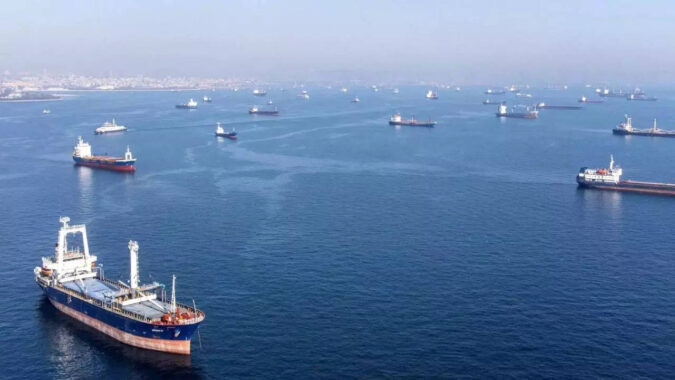VILNIUS: A first batch of Russian fertilizer which Latvia seized last year is being shipped to Kenya by the United Nations’ World Food Programme, Latvia’s Foreign Ministry said on Saturday.
Russia has cited the seizure as a key stumbling block to its continued participation in a Black Sea grains deal that allows Ukraine to export grains.
A vessel left the port of Riga on Friday with part of the 200,000 tonnes of seized fertilizer, the ministry said.
Several more vessels are due to transport the rest of the fertilizer which was seized in March 2022, a ministry spokesperson said.
Russia has indicated that it will not allow the Black Sea export deal which was brokered by the UN and Turkey in July, 2022, to continue beyond May 18 because a list of demands to facilitate its own grain and fertilizer exports have not been met.
Russia’s foreign ministry has repeatedly named fertilizers stuck in Baltic Sea ports as one of the key stumbling blocks to continuing the deal.
The Latvian government described the shipments as a “donation” which it facilitated as “support for the countries that have been affected by the food crisis triggered by Russia’s war on Ukraine”.
It was not immediately clear if Russia was satisfied with the shipment, or if it would boost chances of an extension of the grains deal.
The move comes ahead of a meeting in New York next week between Russian Foreign Minister Sergei Lavrov and UN Secretary-General Antonio Guterres to discuss the grains deal, among other issues.
Lavrov has said nothing has been done to address Russia’s concerns.
Most of the fertilizer seized in Latvia is owned by Uralchem and Uralkali, according to market sources and data seen by Reuters.
The companies used to be controlled by Russian oligarch Dmitry Mazepin, who gave up control last year after the European Union sanctioned him in March 2022 as “a member of the closest circle of Vladimir Putin“.
The Uralchem-Uralkali Group said in February it intended to donate more than 34,000 tonnes of fertilizer stored in Latvia to Kenya.
Russia has cited the seizure as a key stumbling block to its continued participation in a Black Sea grains deal that allows Ukraine to export grains.
A vessel left the port of Riga on Friday with part of the 200,000 tonnes of seized fertilizer, the ministry said.
Several more vessels are due to transport the rest of the fertilizer which was seized in March 2022, a ministry spokesperson said.
Russia has indicated that it will not allow the Black Sea export deal which was brokered by the UN and Turkey in July, 2022, to continue beyond May 18 because a list of demands to facilitate its own grain and fertilizer exports have not been met.
Russia’s foreign ministry has repeatedly named fertilizers stuck in Baltic Sea ports as one of the key stumbling blocks to continuing the deal.
The Latvian government described the shipments as a “donation” which it facilitated as “support for the countries that have been affected by the food crisis triggered by Russia’s war on Ukraine”.
It was not immediately clear if Russia was satisfied with the shipment, or if it would boost chances of an extension of the grains deal.
The move comes ahead of a meeting in New York next week between Russian Foreign Minister Sergei Lavrov and UN Secretary-General Antonio Guterres to discuss the grains deal, among other issues.
Lavrov has said nothing has been done to address Russia’s concerns.
Most of the fertilizer seized in Latvia is owned by Uralchem and Uralkali, according to market sources and data seen by Reuters.
The companies used to be controlled by Russian oligarch Dmitry Mazepin, who gave up control last year after the European Union sanctioned him in March 2022 as “a member of the closest circle of Vladimir Putin“.
The Uralchem-Uralkali Group said in February it intended to donate more than 34,000 tonnes of fertilizer stored in Latvia to Kenya.
